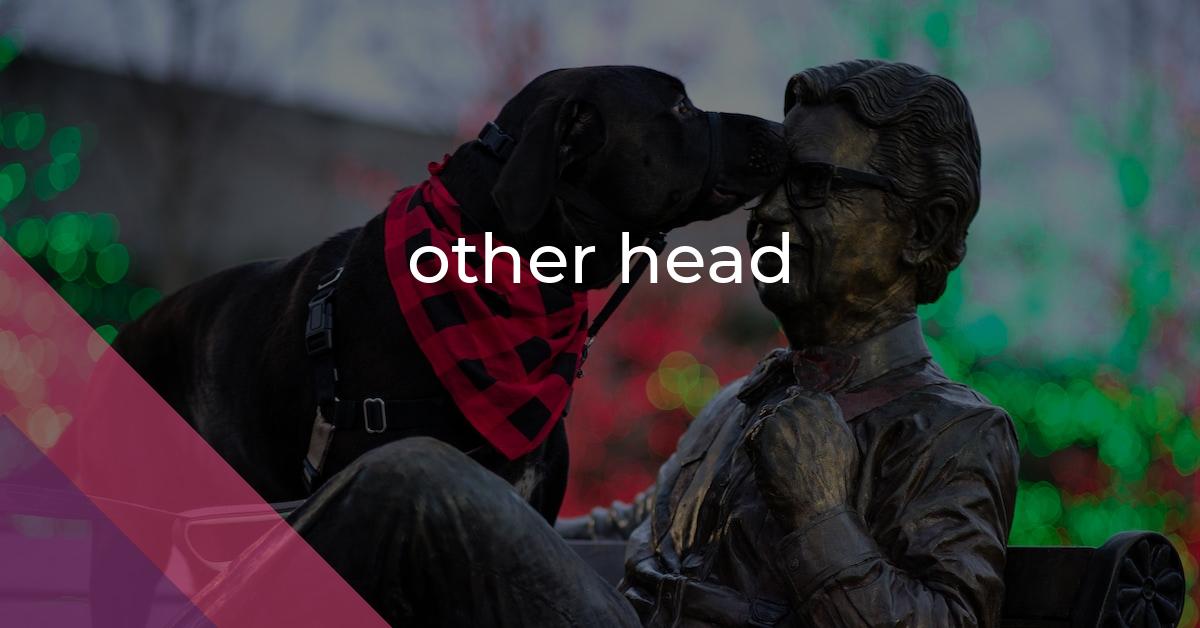other head: Idiom Meaning and Origin
What does ‘other head’ mean?
The idiom "other head" means having a different opinion or perspective, often resulting in conflict or disagreement.

Idiom Explorer
The idiom "pull the other one, it's got bells on" means that someone is being skeptical or doubtful of what another person is saying, implying that the person is not easily fooled or deceived.
The idiom "parting of the ways" refers to a situation where two or more people or groups are going in different directions or have different opinions, leading to a separation or disagreement.
The idiom "over one's head" means to be too difficult or complex for someone to understand or comprehend.
The idiom "other than" is used to indicate an exception or exclusion, suggesting that something or someone is different from or does not fall into a particular category or condition.
The idiom "other side" refers to a different perspective, viewpoint, or position on a particular matter or issue. It implies considering alternate opinions or taking into account different aspects of a situation.
The idiom "other half" refers to someone's romantic partner or spouse, with the implication that they complete or complement each other.
The idiom "other fish in the sea" means that there are plenty of alternatives or options available when one opportunity or relationship fails or ends, suggesting the need to move on and explore other possibilities.
The idiom "other end of the ball" refers to being in a completely opposite or unfamiliar situation or perspective.
The idiom "opinions are like assholes" means that everyone has their own opinions, but they are often considered unpleasant or unnecessary to share.
The idiom "on the other side of" is used to refer to a different viewpoint, perspective, or situation than the one currently being discussed or considered.
Unraveling the Enigma
Other head is an idiom used to describe someone's alter ego or alternate personality. It is a common phrase in colloquial English, often used to express peculiar behavior or conflicting thoughts and actions. The idiom has its roots in the early 20th century and is widely used in informal conversations.
The exact origin of the idiom is uncertain, but it is believed to have originated from the concept of a person having multiple heads or personalities. This idea may have been influenced by the Hydra, a mythological serpent with many heads in Greek mythology. Over time, the idiom has gained popularity through its appearance in various forms of literature and popular culture, further solidifying its place in everyday language.
The meaning of the idiom can vary depending on the context in which it is used. It can refer to someone who displays contradictory behavior, has a split personality, or adopts different personas for different situations. The idiom is often used humorously or sarcastically to exaggerate someone's behavior or actions.
An interesting facet of the English language is the use of idiomatic expressions, such as "have other ideas," "other side," and "head and shoulders," which are related to the concept of other head.
When someone says "have other ideas," they are expressing a different perspective or alternative viewpoints. This idiom aligns with the concept of other head, as it suggests that someone has an alternate way of thinking or understanding a situation. It adds depth to the idea of having multiple "heads" or personalities within oneself.
The idiom "other side" refers to a different perspective or opposing viewpoint. Much like other head, it implies the existence of multiple aspects within an individual. The phrase emphasizes the idea that there is more than one way to approach a situation, and encourages considering different angles before reaching a conclusion.
"Head and shoulders" is an idiom that describes someone or something surpassing others in superiority or excellence. Although it may seem unrelated to the concept of other head at first glance, it shares a common theme of standing out or being distinct. Just as someone's alter ego or alternate personality stands out from the norm, someone who is head and shoulders above others stands out due to their exceptional qualities or abilities.
The usage of these related idioms further enhances the understanding and exploration of the concept of other head. By incorporating the idioms "have other ideas," "other side," and "head and shoulders" into conversations or discussions, we can delve deeper into the complexities of human behavior and expression.
Despite the uncertain origins and varied interpretations surrounding other head, it is clear that this idiom has become a prevalent phrase in the English language. Its informal nature and humorous usage make it an engaging element of everyday communication. Whether used to describe contradictory behavior, a split personality, or different personas for different situations, other head remains an intriguing and versatile idiom within the realm of English idiomatic expressions.
Example usage
Examples of how the idiom "other head" can be used in a sentence:
- He uses his creativity and problem-solving skills to think outside the box and come up with ideas that others wouldn't even consider. He definitely has another head!
- She is known for her quick thinking and ability to make decisions under pressure. It's like she has another head!
- When it comes to multitasking, he is a pro. He can handle multiple projects simultaneously and still deliver top-notch results. It's as if he has another head!
More "Verb" idioms



